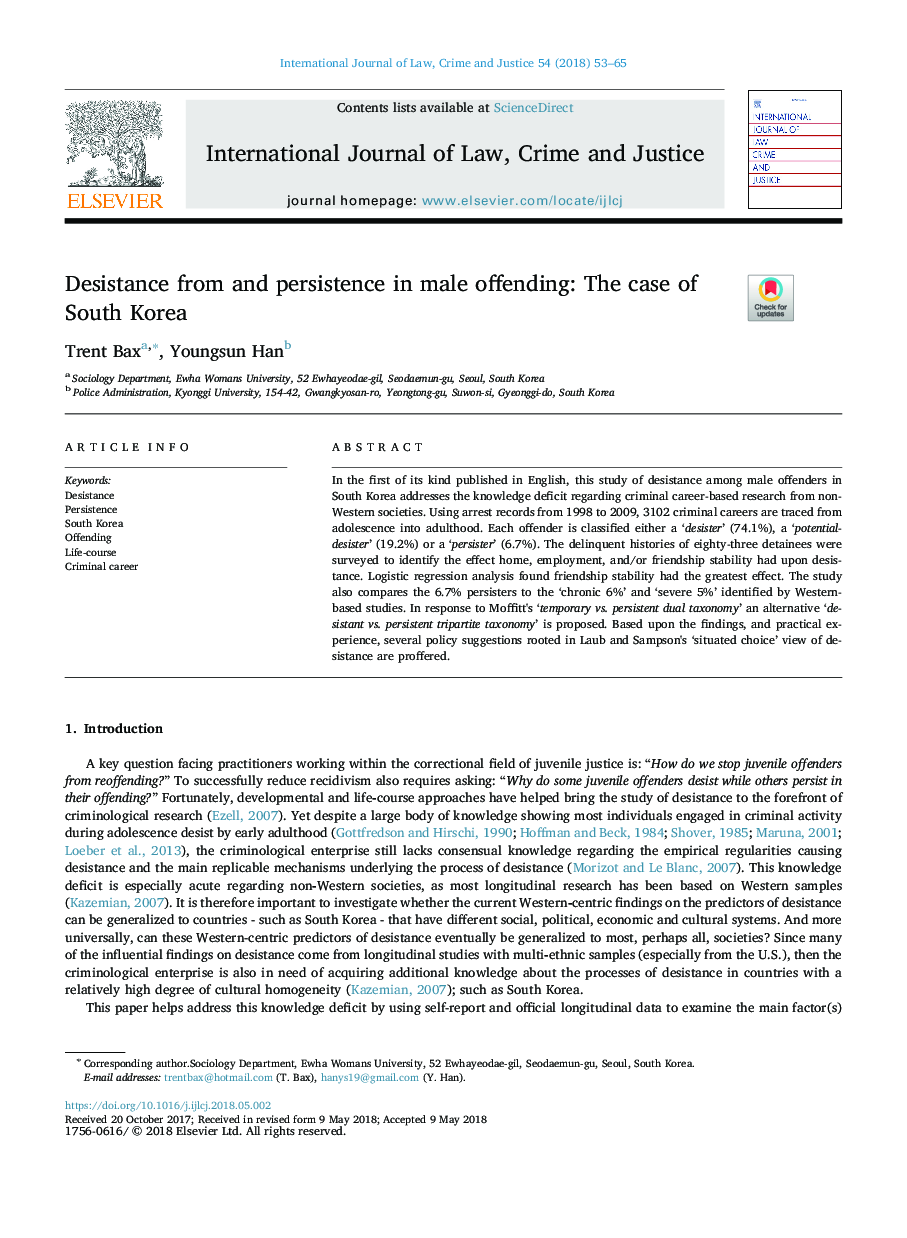| Article ID | Journal | Published Year | Pages | File Type |
|---|---|---|---|---|
| 7531943 | International Journal of Law, Crime and Justice | 2018 | 13 Pages |
Abstract
In the first of its kind published in English, this study of desistance among male offenders in South Korea addresses the knowledge deficit regarding criminal career-based research from non-Western societies. Using arrest records from 1998 to 2009, 3102 criminal careers are traced from adolescence into adulthood. Each offender is classified either a 'desister' (74.1%), a 'potential-desister' (19.2%) or a 'persister' (6.7%). The delinquent histories of eighty-three detainees were surveyed to identify the effect home, employment, and/or friendship stability had upon desistance. Logistic regression analysis found friendship stability had the greatest effect. The study also compares the 6.7% persisters to the 'chronic 6%' and 'severe 5%' identified by Western-based studies. In response to Moffitt's 'temporary vs. persistent dual taxonomy' an alternative 'desistant vs. persistent tripartite taxonomy' is proposed. Based upon the findings, and practical experience, several policy suggestions rooted in Laub and Sampson's 'situated choice' view of desistance are proffered.
Related Topics
Social Sciences and Humanities
Social Sciences
Law
Authors
Trent Bax, Youngsun Han,
